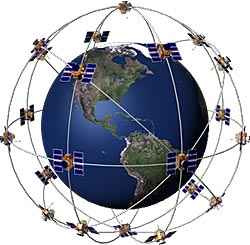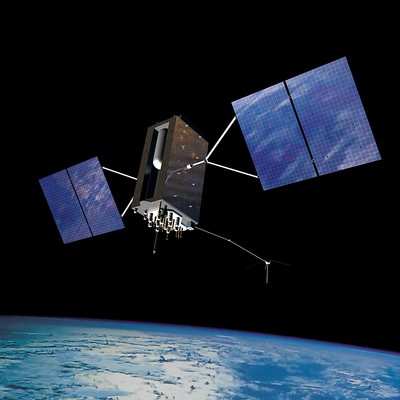Mon, May 11, 2009
New Satellites May Not Keep Up With Needs
 It's not exactly a
page-turner but a recently issued GAO report ANN is reading has us
a mite concerned... according to some of the data published
therein, the GAO found that, "It is uncertain whether the Air Force
will be able to acquire new satellites in time to maintain current
GPS service without interruption. If not, some military operations
and some civilian users could be adversely affected."
It's not exactly a
page-turner but a recently issued GAO report ANN is reading has us
a mite concerned... according to some of the data published
therein, the GAO found that, "It is uncertain whether the Air Force
will be able to acquire new satellites in time to maintain current
GPS service without interruption. If not, some military operations
and some civilian users could be adversely affected."
The GAO preface states that, "In recent years, the Air Force has
struggled to successfully build GPS satellites within cost and
schedule goals; it encountered significant technical problems that
still threaten its delivery schedule; and it struggled with a
different contractor. As a result, the current IIF satellite
program has overrun its original cost estimate by about $870
million and the launch of its first satellite has been delayed to
November 2009—almost 3 years late.
Additional GAO Considerations:
- ...while the Air Force is structuring the new GPS IIIA program
to prevent mistakes made on the IIF program, the Air Force is
aiming to deploy the next generation of GPS satellites 3 years
faster than the IIF satellites. GAO’s analysis found that
this schedule is optimistic, given the program’s late start,
past trends in space acquisitions, and challenges facing the new
contractor. Of particular concern is leadership for GPS
acquisition, as GAO and other studies have found the lack of a
single point of authority for space programs and frequent turnover
in program managers have hampered requirements setting, funding
stability, and resource allocation.

- If the Air Force does not meet its schedule goals for
development of GPS IIIA satellites, there will be an increased
likelihood that in 2010, as old satellites begin to fail, the
overall GPS constellation will fall below the number of satellites
required to provide the level of GPS service that the U.S.
government commits to. Such a gap in capability could have
wide-ranging impacts on all GPS users, though there are measures
the Air Force and others can take to plan for and minimize these
impacts.
The GA Report makes a recommendation that the Secretary of
Defense appoint a single authority to oversee development of GPS
space, ground control, and user equipment assets, to ensure they
are synchronized, well executed, and potential disruptions are
minimized. DOD reportedly concurred with GAO's
recommendations.
More News
Also: Netherlands Donates 18 F16s, 2 737s Collide On Ramp, E-7 Wedgetail Cut, AgEagle's 100th In S Korea The Pilot and Aircraft Privacy Act was introduced in the House by Represent>[...]
Pilot Also Reported That Due To A Fuel Leak, The Auxiliary Fuel Tanks Were Not Used On June 4, 2025, at 13:41 eastern daylight time, a Piper PA-23, N2109P, was substantially damage>[...]
Have A Story That NEEDS To Be Featured On Aero-News? Here’s How To Submit A Story To Our Team Some of the greatest new stories ANN has ever covered have been submitted by our>[...]
From 2023 (YouTube Edition): Reflections on War’s Collective Lessons and Cyclical Nature The exigencies of war ought be colorblind. Inane social-constructs the likes of racis>[...]
What Goes Around, May Yet Come Back Around, Klyde FMI: www.klydemorris.com>[...]
 Airborne 06.30.25: US v ADS-B Misuse, Natl STOL Fire, Volocopter Resumes
Airborne 06.30.25: US v ADS-B Misuse, Natl STOL Fire, Volocopter Resumes NTSB Prelim: Piper PA-23
NTSB Prelim: Piper PA-23 ANN FAQ: Submit a News Story!
ANN FAQ: Submit a News Story! Classic Aero-TV: One Mans Vietnam
Classic Aero-TV: One Mans Vietnam Klyde Morris (06.30.25)
Klyde Morris (06.30.25)




